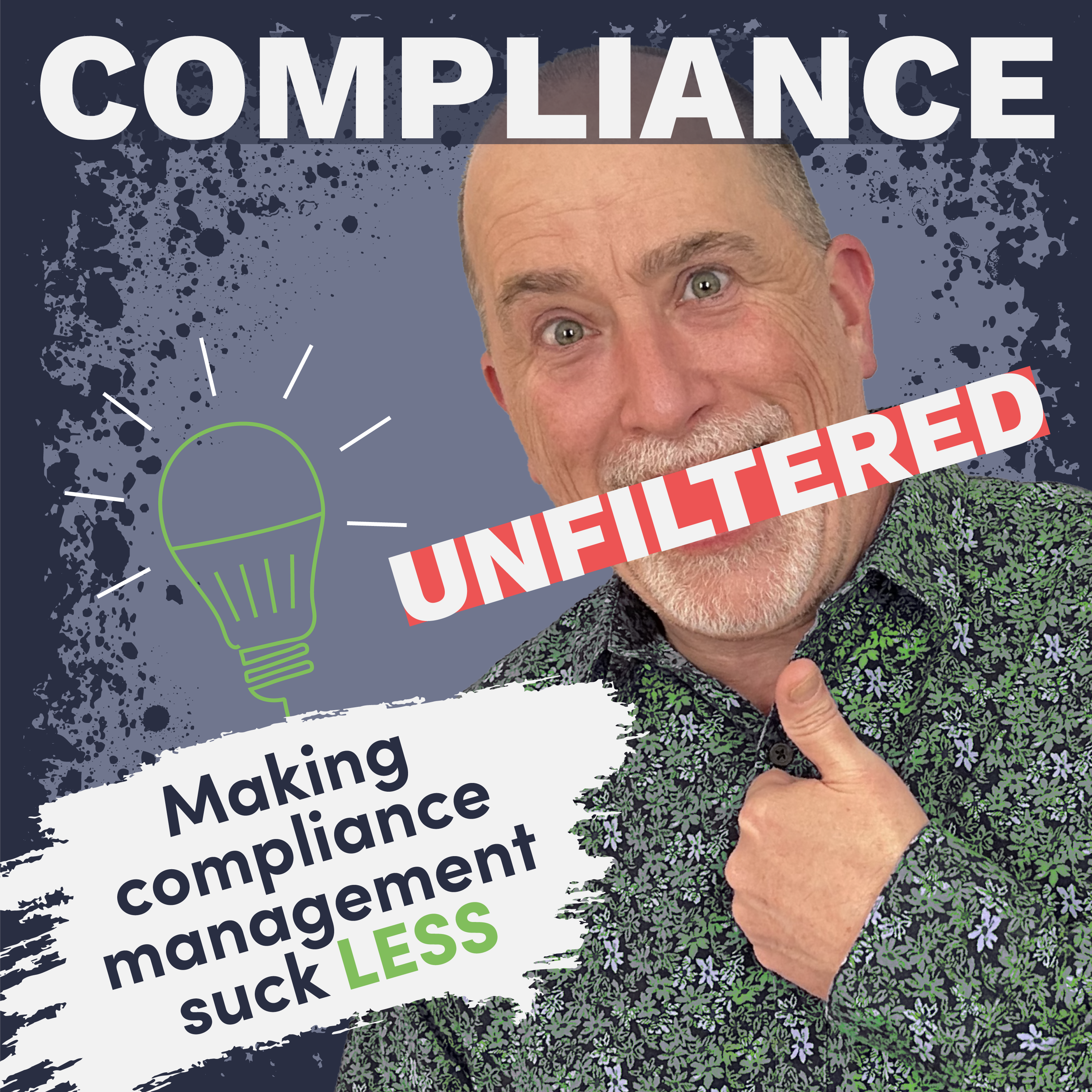Waaay back in the day, several decades ago, I worked in a manufacturing setting for several years. The facility built tools for other companies, and my role was to learn, then run a rapid prototyping machine.
Back then, there was zero semblance of anything related to security and compliance. I frequently sat in on leadership meetings at the company, and there was absolutely no security mindset among the leadership team. The mentality was to focus on operations — just go and get stuff done, fast.
Manufacturing companies are at the beginning of an enormous shift in the industry. Proactive security and compliance is gaining attention, and customers are increasingly buying from manufacturers who can prove compliance with various security standards. A single manufacturer may even need to go up against five or more security and compliance frameworks.
Those companies in manufacturing that do go up a security and compliance standard will typically comply with ISO 27001, although few of them have done so. It wasn’t until recently that there’s been increased attention on protecting customer data.
Manufacturers who drag their feet to embrace security and compliance are going to miss out on important contracts, could lose existing customers, and may find themselves the target of a very public and expensive data breach. Meanwhile, those who get on board will have a business advantage to win more customers.
What Will Happen If Your Company Suffers a Data Breach?
Here’s why you need to start making the move now to make the shift to a security and compliance mindset.
The Pressure to Take on Security and Compliance
The manufacturing industry is facing two sets of external pressures that are forcing these organizations to take on security and compliance programs: more and more customers are requiring security and compliance measures being in place, and certain client groups are making demands (for example, DoD contractors who must now meet CMMC standards).
While you may need to comply with industry regulations, it’s your customers that immediately impact your company’s wellbeing.
In the past, manufacturing companies have often dismissed the idea of security and compliance, because “we’re just making parts.” But what many of these organizations don’t realize is that depending on how the facility is operating, you have a ton of sensitive information that makes you a prime target for a cyberattack.
Your customers trust your organization with sensitive information that needs to be protected. For example, you’re likely in possession of schematics that contain intellectual property. If that information gets leaked, it could have a tremendous impact on your customers’ business.
You’re also storing and handling sensitive data about your employees — pay information, medical leaves, contact information, background checks, and more.
As customer concerns are raised, there’s an increasing demand for proof that manufacturers are doing their due diligence to protect customer data. Complying with certain security standards is the best way to show that you’re a safe manufacturer to do business with.
But that’s not the only sensitive information you’re handling. Depending on your business, there could be:
- Employee data
- Medical data and insurance information
- Credit card information
- Customer proprietary information and intellectual property
- Intellectual property of your organization and “secret sauce” to protect
Based on this list alone, you could be legally required to comply with several security standards, including HIPAA and PCI DSS. ISO 27001, SOC 2 may be required by some customers — and if they’re in the DoD supply chain, you’ll need to add CMMC to the list.
Customers and employees are your two biggest stakeholders, and if they lose trust in you, you’ve lost your business. Ignoring your due diligence around security and compliance is a bad business move.
The Business Case for Security and Compliance
If you’re unconvinced that security and compliance should take a front seat in your company, I get it. The prospect of complying with multiple security standards isn’t a pleasant one. Manufacturers need to run lean and exercise prudence. You can’t take on a new initiative simply because it sounds like a good idea. So unless there’s a really good business case for adopting a security standard — or you’re mandated to do it — then it isn’t likely to be a priority.
I find these two questions to be pretty damn clarifying when it comes to a business case:
- What information are you storing that your employees, vendors, and customers trust you to keep private?
- If that data were to get breached, how would those stakeholders react, and what would it do to your business?
For example, your employees don’t want their employment records to be accessed. They don’t want their ACH information to get stolen. They don’t want bad actors to know about their medical leave details or insurance related information.
If you’re in business, you have something to protect — a process, a product, or a deliverable that someone else is willing to pay for. If someone is willing to pay for it, then someone else will be willing to steal it.
Manufacturers are increasingly dealing with customers who bring security requirements to the table as a stipulation for doing business with them. Customers may expect proof of compliance with ISO 27001, HIPAA, SOC 2, PCI DSS, CMMC, or NIST. If you can’t provide proof of compliance with specific security standards, you’ll miss out on winning bids.
Could You Lose Existing Customers?
In fact, you may already have contracts with stipulations related to security and compliance, but nobody was actively enforcing them. Another possibility is that your prime customers are moving toward security and compliance initiatives, and now expect their vendors to do the same.
Regardless of the causal effect of your customers seeing the security light, they’ll push to remedy the issue and they’ll request your latest security and compliance proof). If you aren’t already compliant, you’ll be running the risk of immediate danger of losing that client.
At the end of the day, every single customer on your books believes that you’re protecting their information — whether their contract requires specific compliance standards or not. They’re already trusting you with sensitive data, and they believe you’re doing what you should be doing to protect it.
So-So Security Is Simply Bad Business
How to Get Started with Security and Compliance
For most manufacturers, there just hasn’t been much exposure to the cybersecurity and compliance space, and that lack of familiarity makes it difficult to get up and running smoothly. You’ve never had to think about these things before, and there isn’t a clear path to start moving forward.
Your first step should be to think through and document all of the sensitive data that you need to protect, which you either receive, process, store, or transmit. That will include:
- Customers’ intellectual property
- Credit card information
- ACH data
- Employee contact information
- Employee medical information
- Background checks
- Your financials
- Assembly processes
- Anything else you don’t want to be made public
Next, go through the exercise of asking what your employees, customers, and vendors would do if they learned that data was leaked. Finally, reach out to an expert who can help you determine how to protect that data.
Because there hasn’t historically been a focus on information security in manufacturing, chances are your IT personnel are the ones who will be tasked with running your cybersecurity and compliance program. This is a huge mistake. Your IT team is exceptionally qualified to do IT, but IT and cybersecurity are two very different realms.
IT personnel would make terrific implementers, but they don’t have the expertise to lead security and compliance programs. As a result, putting them in charge of the program actually increases risk to your organization.
Why Your IT Team Shouldn’t Do Cybersecurity
Instead, get a compliance Consultant who can assist you in getting your cybersecurity and compliance program up to speed. A good Consultant can provide sound directional guidance that’s customized to your particular organizational context. They’ll help you to understand exactly what you actually need (and what you don’t), so that you can establish a security stance that’s appropriate for your manufacturing company.
Working with a Consultant will give you a clear and achievable roadmap to not only meet and exceed the bare minimum security requirements, but also step into an arena where those activities are actively shielding your company from a cyber attack.
Better yet: your compliance Consultant can provide you with solid recommendations for vendors to help fill identified gaps in your coverage, customized based on the existing suite of vendors you have today. Also, your Consultant can recommend good Assessors to work with on the various security and compliance standards the organization goes up against.
Gain Compliance with Confidence
TCT would be happy to have a conversation with you to walk through your circumstance and provide some directional guidance. TCT may be of assistance — and if not, we’re well connected to various security and compliance Consultants and can refer you to an expert you can trust (with no affiliate incentives).
Let’s start a conversation about getting your manufacturing company on a smooth path to security and compliance today.





